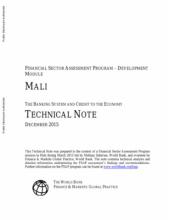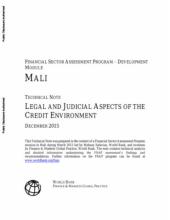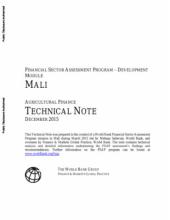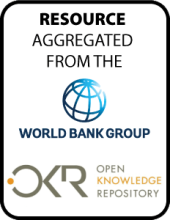Land Library Search
Through our robust search engine, you can search for any item of the over 73,000 highly curated resources in the Land Library.
If you would like to find an overview of what is possible, feel free to peruse the Search Guide.
/ library resources
Showing items 1 through 9 of 209.How Africans access – or ‘own’ – their landholdings is a matter of profound importance for the continent’s future. It touches on social welfare as well as prospects for economic development.
There has been significant development of Mali’s banking sector in recent years, but it remains shallow, and access to banking services is limited. With the opening of a new bank in 2014, there are now 14 commercial banks operating in Mali.
A country’s legal and judicial environment can help or hinder access to credit. In addition to the banking law governing the organization of the sector, the operations of credit institutions are subject to several laws.
The performance of the Malian economy is largely dependent on the performance of the agricultural sector. The overall good growth in the Malian economy over the last several years is attributed to the agricultural GDP growth.
Wind-power development in the U.S. occurs primarily on private land, producing royalties for landowners through private contracts with wind-farm operators. Texas, the U.S.
Property of law of the landed property completeness and organization of the agriculture reveals in an empery of the owner over the property; variety, completeness of objects of the real rights; will of the owner acting at discretion and in the interest; the wide set of its competences; the system
After a destructive civil war and
extreme political instability, Uganda began its
reconstruction process in 1987. Within the enabling
environment of macroeconomic stability, most of the progress
The World Bank Group (WBG) Country
Partnership Framework (CPF) for Egypt forFY15-19 has been
prepared at an important juncture in Egypt’s history to
support transformational changes to the economic and social








